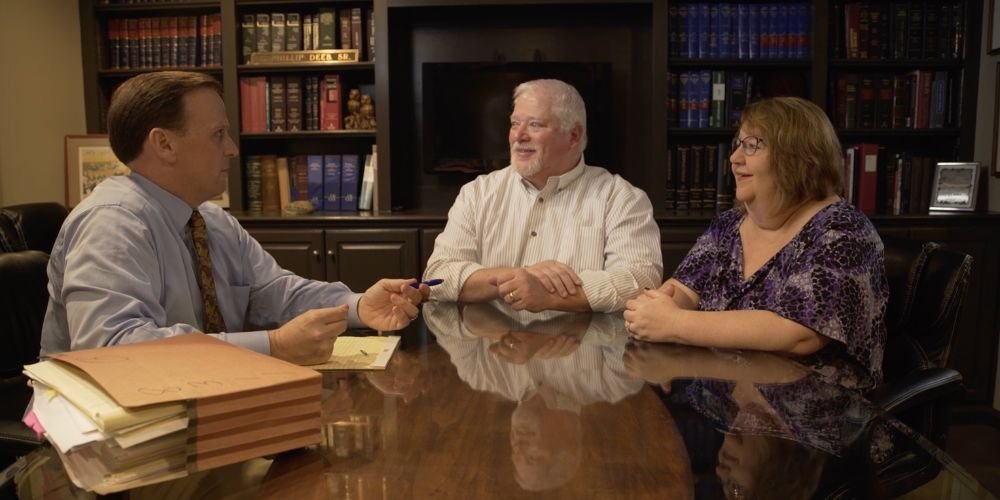
Trust Administration
If you are here because a loved one has passed away, please know we express our condolences to you.
Handling the technical details during a time of loss and grieving can be difficult. We are here to help you through this process and take as much off your hands when it comes to locating assets, paying bills, and making sure your loved one’s assets get to the right people without court or conflict.
If your loved one created a trust and all of their assets are in trust or named the trust properly as the beneficiary, we will be able to begin the trust administration process immediately and outside of probate court, which is good news.


How can we help?
We work closely with the deceased’s family members, beneficiaries, and trusted advisors to make sure the trust assets are inventoried, debts are paid, and the assets are distributed to the named trust beneficiaries.
Depending on the type of trust that was set up, the assets could be distributed straight to the beneficiaries, or they might be held in trust for the future benefit of the named beneficiaries.
How does Trust Administration Work?
When a trust is set up, a “trustee” will need to be named. The trustee’s job is to ensure that the trust assets are properly handled, and the terms are complied with. Serving as a trustee is no easy task and holds a ton of responsibility. It is best to name someone with experience or at least a limited background in carrying out the legal and financial duties that come with administering a trust.
If the trustee doesn’t have these qualifications, that’s ok too! We have seen that many times. We just want the trustee to be aware that the most careful course of action is to bring on an attorney to help with the administration. That way, the trustee can be at ease knowing the trust is being handled properly and all legal requirements are being met. This will also reduce or eliminate any personal liability related to the role of trustee as well.
During the administration process, we will evaluate title to and beneficiary designations of all the deceased’s assets to identify which assets fall under trust administration and which might need to be probated. We will also coordinate appraisals on significant assets to understand the deceased’s net worth for estate tax purposes.

The responsibilities
of the trustee
A trustee is usually responsible for all of the following:
Notification to all heirs and beneficiaries of the pending trust administration
Identification and collection of assets
Determination of values of assets
Payment of all debts, expenses, and taxes of the trust estate
Preparation of regular accountings during trust administration
Solicitation of professional advice as to the disposition of jointly held assets, life insurance, and retirement benefits that pass through or outside the trust
Preparation of federal and state tax returns, as well as gift tax and generation-skipping transfer tax reporting
Communication with beneficiaries throughout the trust administration process.


What to do when the trust administration is complete
After everything has been reviewed, the trustee will refer to the terms as to how the assets will be disbursed to the rightful beneficiaries or held for the benefit of the named beneficiaries in the trust.
These terms in the trust will decide if the assets should be distributed straight to the beneficiary, or if they should be held in trust for the benefit of the named beneficiaries. It’s common for trust assets to be held if the beneficiaries are minors or young adults, have special needs, or might have creditor issues that would unnecessarily expose their trust inheritance to risk.
If the trust assets are to be distributed outright, the trustee will prepare and sign the appropriate conveyance documents to the beneficiaries. This part can be a little complicated. The trustee will usually want some sort of assurance that the trust asset is correctly transferred and the trustee is no longer open to future claims of wrongdoing or omission.
We offer legal guidance to help you cover the gaps you may not even know exist if you are navigating a trust administration on your own.
WE ASSIST THE TRUSTEE ADMINISTER THE TRUST AS QUICKLY AND SMOOTHLY AS POSSIBLE
If you have been named trustee of an estate and don’t have a background or experience in trust administration, give us a call. We will help guide you through the process to avoid any unnecessary legal pitfalls that may occur. We will also help you communicate with trust beneficiaries in a way that makes them feel an integral part of the process, rather than a simple bystander or “nuisance.” We have seen a ton of litigious situations arise from communication failures with beneficiaries. This won’t happen when we are guiding you in your duties as a trustee.
CHECK OUT A FEW RELATED BLOG ARTICLES




